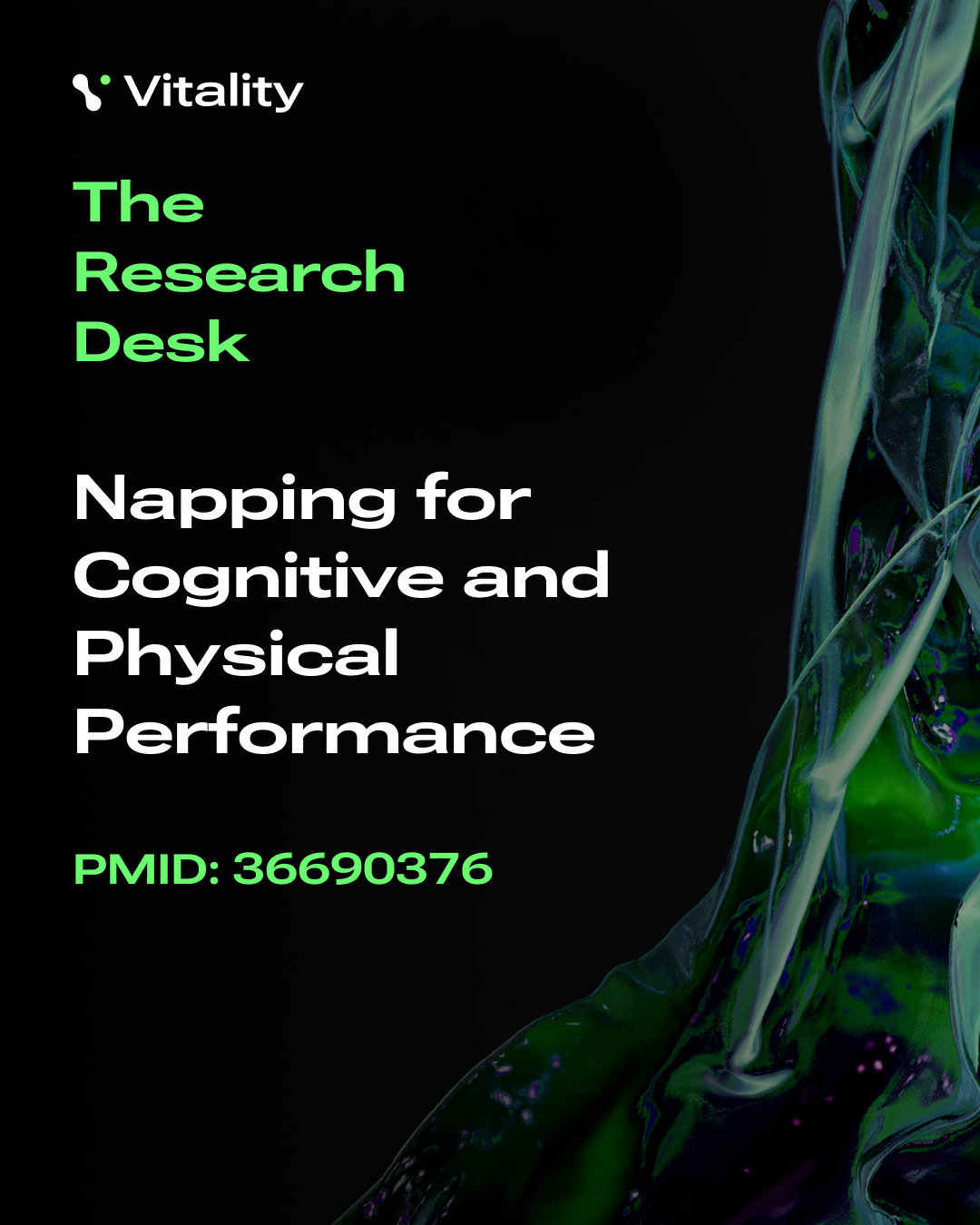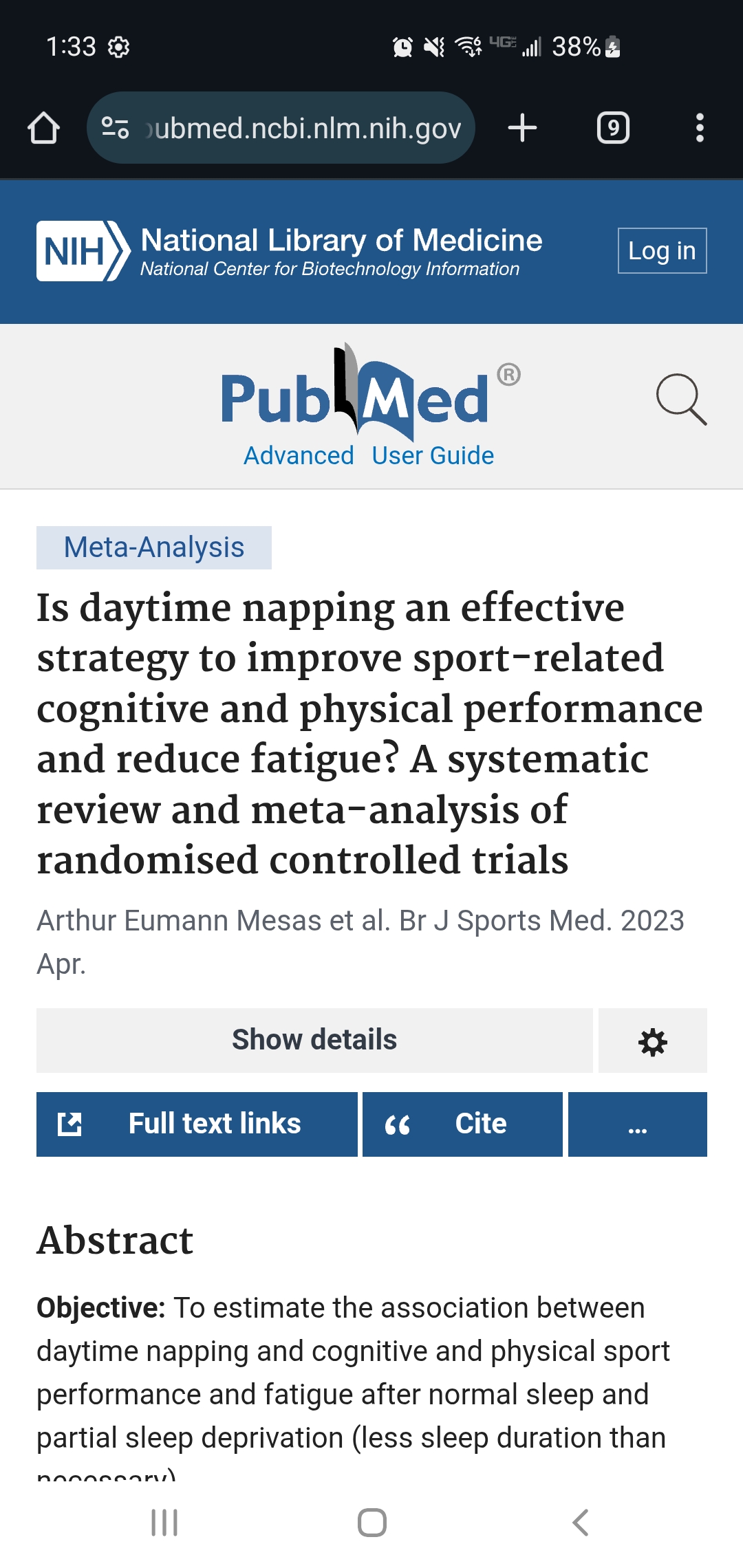
Sleep is an undeniable cornerstone of performance. However, daytime napping has not been granted the same status. While many agree that napping can be beneficial for sleep-deprived individuals, the benefits of napping come into question after a full night's rest.
Today, The Research Desk takes a look at a meta-analysis examining the effects of napping after a full night’s rest and after sleep deprivation on performance outcomes.


.png)


PMID: 36690376
After examining 22 articles looking at 164 trained athletes and 127 physically active adults (18 to 35 years old), researchers concluded that napping is highly beneficial to physical performance and moderately beneficial to cognitive performance and rating of perceived fatigue.
This research not only confirmed early perceptions of napping benefits in sleep-deprived individuals, but also brought its benefits to napping after a full night’s rest.
This article continues with some great insight on napping instruction. Researchers determined that maximal benefits were realized when naps between 30 and 60 minutes long were concluded at least one hour before having to perform.
When it comes to cognitive benefits, authors suggest that the longer durations may be due to increased time spent in deeper non-REM stages of sleep, which are linked to synaptic recovery and brain restoration. Similar explanations were given for the positive effects of napping on perceived fatigue scores.
Considering performance, researchers suggest that napping plays an important role in enhanced muscle relaxation and structural and functional recovery.
Sleep touches almost all of the Performance Areas in the Vitality Encyclopedia. This meta-analysis suggests that this goes beyond nightly rest and extends to daily napping, independent of the sleep performance the night before.
Researchers show the connection between a nap and cognitive function, perceived fatigue, i.e. resilience, and the general idea of overall performance. Within the concept of performance, researchers mention strength, power, and endurance.
Sleep also plays a vital role in many of the Vitality Functional Areas as well. To name a few, sleep can influence resilience, energy, inflammation, stress load, and an individual’s hormone profile.
Without a doubt, sleep, including napping, contributes to optimal performance.
Recommendation: Take a 20- to 60-minute nap daily. On days requiring performance, naps should conclude at least 60 minutes before the event.
Explore the Vitality Encyclopedia to learn more about these topics.